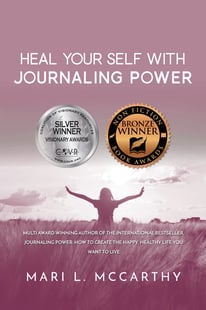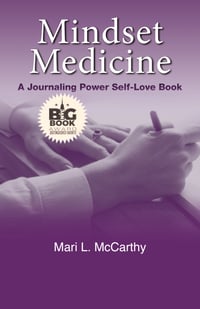As we grow older, life can sometimes feel more challenging. Our bodies change, we face new losses, and the world moves faster than we'd like. But while aging brings difficulties, it also offers chances for profound growth. There are many tools that can help seniors thrive mentally and emotionally through life's twists and turns. One simple but powerful option is keeping a personal journal.
Journaling Soothes the Mind
Stress is a constant companion for many older adults. Concerns over health, grief, or big life changes can weigh on our minds. This constant worrying can drain anyone's spirit over time. Journaling provides a healthy way to process these feelings. As we write, our jumbled thoughts often become clearer.
Putting experiences into words releases inner turmoil. As seniors write about what stresses them, those anxieties loosen their grip. Journaling allows us to focus on one thing at a time rather than being overwhelmed by a storm of worries. It clears our heads so we can concentrate better. Regular journaling can lower levels of the stress hormone cortisol. For many older adults, writing brings a sense of calm.
Journaling Comforts the Heart
Growing older also means weathering difficult emotions like sadness, anger, and fear. Sometimes it can feel like we're expected to ignore what upsets us. But shoving distress away rarely works.
Journaling creates a safe space to honor how we feel. It allows us to express emotions fully without judgment. Translating feelings into language moves them from the shadows into the light. Writing pierces their intensity so they're not so frightening anymore. Journaling externalizes inner pain, releasing its grip on our hearts. As seniors write out their feelings, they often gain insight into why they feel that way. This awareness brings relief.
Doctors at adult primary care practices sometimes recommend journaling to help older patients manage difficult emotions in a healthy way. Regular writing can provide an emotional outlet without judgment.
Journaling Strengthens the Mind
Aging affects our cognitive abilities, like memory, focus, and quick thinking. Journaling provides simple but powerful ways to exercise our mental muscles. Recording experiences and thoughts preserves them better than just thinking about them. Re-reading entries later challenges our recall. And putting ideas on paper makes them tangible so we can re-examine them from new angles.
Journal prompts encourage us to dig deeper into memories, beliefs, and concerns. Writing in stream-of-consciousness strengthens skills like brainstorming. Penning poetry and metaphors engages imagination and creativity. Journaling allows us to actively use our minds rather than passively consume media. It keeps our thought processes flexible and sharp.
A 2021 study on journaling and memory in older adults showed the percentage of participants who reported improved memory after 8 weeks of daily journaling.
Journaling Lends Perspective
Life brings constant change as we grow older. Letting go of the past, adjusting to new limitations, or figuring out our next chapters can feel daunting. When everything seems uncertain, journaling offers grounding. Recording our journey over time provides perspective on how far we’ve come. Journaling helps us make sense of the twists and turns in the road.
Seeing thoughts laid out on paper often brings new insights. We notice patterns we’d missed before. Reflecting on difficulties in our journal usually reveals our strength that missed noticing. Writing clarifies what matters most. It helps us appreciate little blessings when life feels hard. Journaling allows us to have compassion for our younger selves. It enables us to leave a lasting legacy of wisdom for the generations to follow.
Tips for Starting a Journaling Practice
Journaling offers many benefits, but it may feel intimidating at first. Here are some tips to get started:
- Choose a method you enjoy. You can write longform in a notebook, use a guided journal, create art journals, or dictate into a recording device. Find what fits your personality.
- Set a comfortable pace. Don't pressure yourself to write volumes each day. Start small with just 5-10 minutes at a time. Frequency matters more than length.
- Write freely. Don't judge your writing style or censor your thoughts. Focus on expressing yourself openly. Perfection isn't the goal.
- Explore different topics. Write about your memories, daily experiences, feelings, struggles, hopes, or lessons learned. Variety keeps journaling engaging.
- Make it a ritual. Set a regular time to write each day or week. Consistency helps make journaling a beneficial habit.
Real Life Stories: Journals That Uplift the Spirit
To understand journaling's impact, here are three real life stories from older adults:
Miriam, age 68: After losing her husband after 45 years of marriage, Miriam felt adrift. She began keeping a journal to process her profound grief. "The journal gave me a way to say goodbye that felt meaningful," she shares. Months later, she continues writing to preserve precious memories. "My journal keeps my late husband's spirit alive. It reminds me of how much life we shared."
Frank, age 79: A retired teacher, Frank, recently noticed his thinking felt fuzzier. He started writing regularly to exercise his mental sharpness. "Writing in my journal seems to lubricate my brain," he explains. "My concentration has improved, and my memory feels less sluggish." Frank also appreciates revisiting past journal entries. "It's rewarding to see I haven't lost as many marbles as I feared!"
Sonia, age 84: Sonia faced anxiety after a cancer diagnosis. She initially turned to journaling to manage fear about upcoming treatments. But she discovered broader benefits over time. "Putting my worries on paper shrinks them," she observes. Sonia continues writing to maintain perspective. "No matter what happens, my journal reminds me I have a history worth celebrating and more life yet to live."
Journaling: A Simple Way to Support Wellbeing
Life can become more complex as we grow older. But journaling provides a simple way to care for our whole selves amid the chaos. By giving us an outlet for thoughts and feelings, journaling soothes minds, comforts hearts, and stimulates cognition. It helps us navigate life's changes and build resilience when times get tough. Journaling allows us to process our experiences, so we stay grounded in who we are. It strengthens our voices, so we share hard-won wisdom. Journaling enables self-discovery at any age. This humble habit can have a profoundly uplifting impact.
Frequently Asked Questions
What should you write about in a journal?
You can write about daily experiences, memories, feelings, problems, hopes, lessons learned, and anything else on your mind. There are no rules - just write freely.
How long does it take to benefit from journaling?
Journaling starts providing benefits after just a few weeks of regular writing for 10-15 minutes a day. Consistency is key.
What if I can't write well or make mistakes?
Don't worry about writing perfectly. Journaling is just for yourself. Mistakes don't matter - the focus is on expressing your thoughts.
Do I need fancy supplies to start journaling?
All you need is a pen and paper to begin! You can always get a special journal or writing tools if you enjoy journaling. But basic supplies are fine.
Featured Image: https://www.pexels.com/photo/joyful-adult-daughter-greeting-happy-surprised-senior-mother-in-garden-3768131/
Journaling Power Revolution Series





Leave Comment